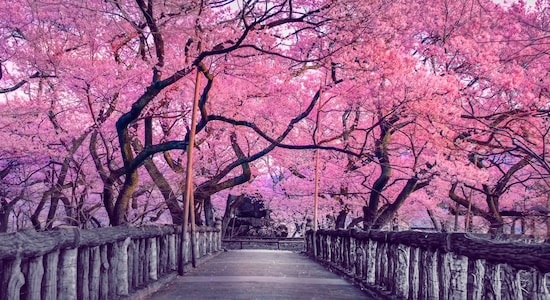
 1 / 9
1 / 9Japan, renowned for its breathtaking cherry blossoms, has seen an advancement in the blooming period. According to Daisuke Sasano, a climate risk management officer at the Japan Meteorological Agency, the average blooming date has moved forward by 1.2 days per decade since 1953. (Image: Shutterstock)
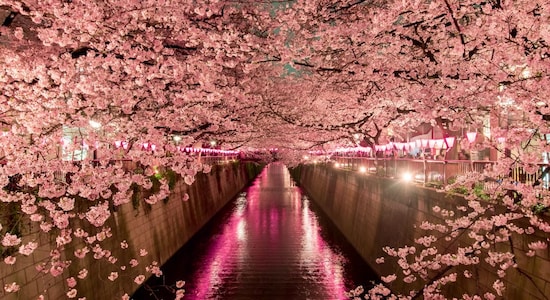
 2 / 9
2 / 9In Tokyo, for instance, the cherry blossoms once typically graced the city with their presence around March 29 between 1961 and 1990. However, from 1991 to 2020, this date shifted to March 24, attributing the change to global warming compounded by urbanisation, with Tokyo warming by 3°C over the past century. (Image: Shutterstock)
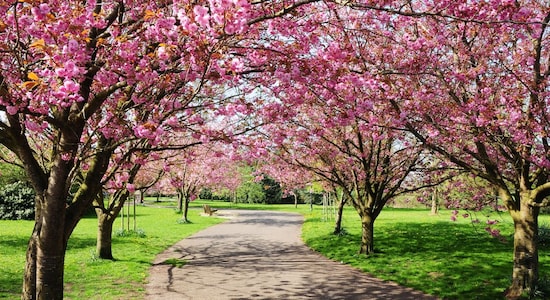
 3 / 9
3 / 9Last year, Tokyo experienced an unprecedented event as it became the site of Japan's first cherry blossom bloom on March 14, contrary to the traditional pattern where blooms start in the southern regions before spreading northward along the 'cherry blossom front.' (Image: Reuters)
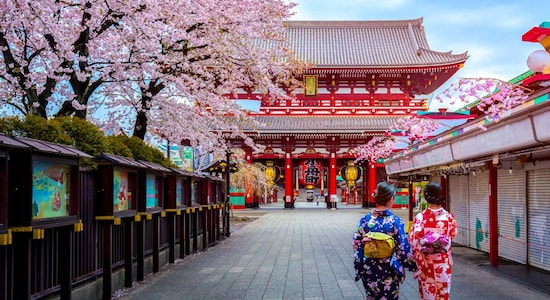
 4 / 9
4 / 9The Japan Weather Association is anticipating an even earlier bloom for Tokyo this year, setting March 21 as the projected peak date. Already, cherry blossoms are beginning to appear in numerous locations across Japan, heralding the arrival of spring. (Image: Shutterstock)
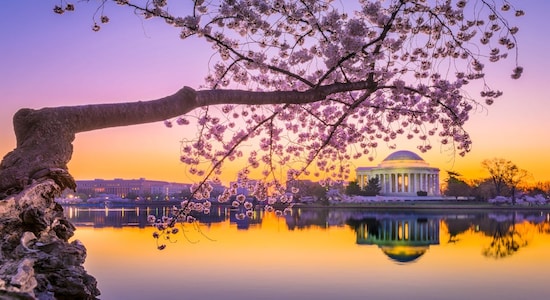
 5 / 9
5 / 9The phenomenon is not confined to Japan alone. In the United States capital of Washington, D.C., home to nearly 4,000 cherry trees gifted by Japan in 1912, a similar trend is observed. The National Cherry Blossom Festival, a major tourist attraction, typically draws over 1.5 million visitors annually and generates more than $100 million in spending. (Image: Reuters)
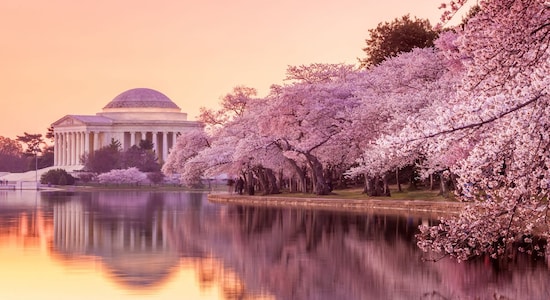
 6 / 9
6 / 9However, climate change is altering this landscape too. The Yoshino variety cherry trees around the Tidal Basin are reaching their peak bloom approximately seven days earlier than they did in 1921, with the average peak bloom date now anticipated to fall between March 23-26. (Image: Shutterstock)
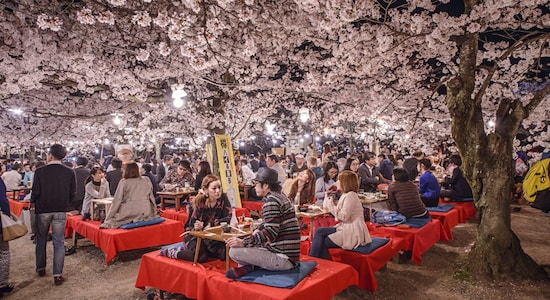
 7 / 9
7 / 9Climate scientists like Theresa Crimmins, Director of the USA National Phenology Network, point to the correlation between rising temperatures and earlier springtime blooms. However, they also caution against assuming a linear progression. While warmer temperatures may accelerate blooming, insufficient exposure to cold temperatures can delay or disrupt the process, potentially leading to reduced flower and fruit production. (Image: Reuters)
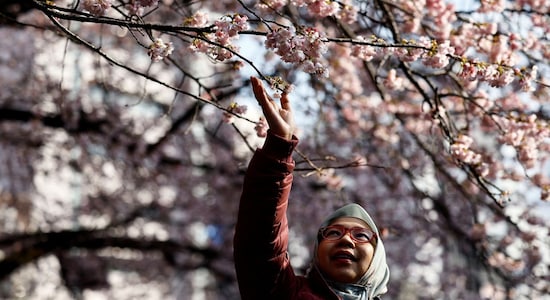
 8 / 9
8 / 9Moreover, beyond altering blooming schedules, climate change is directly impacting the health and longevity of cherry trees. In Washington, D.C., rising water levels in the Potomac river, attributed to climate change, along with infrastructure issues, are threatening the iconic cherry trees around the Tidal Basin. (Image: Reuters)
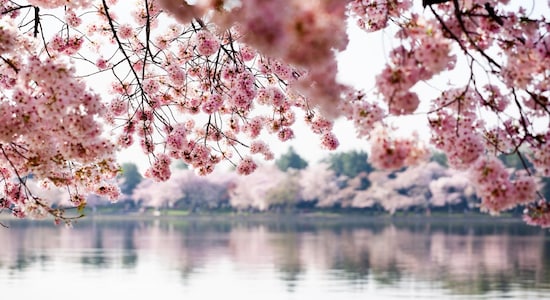
 9 / 9
9 / 9To address this, the US National Park Service is embarking on a multi-year climate resilience project. This initiative involves the removal of over 150 cherry trees, along with other species, to facilitate repairs to sea walls and mitigate inundation of tree roots. However, the agency plans to replant 455 new trees, including 274 cherry trees, once the project is completed. (Image: Reuters)

